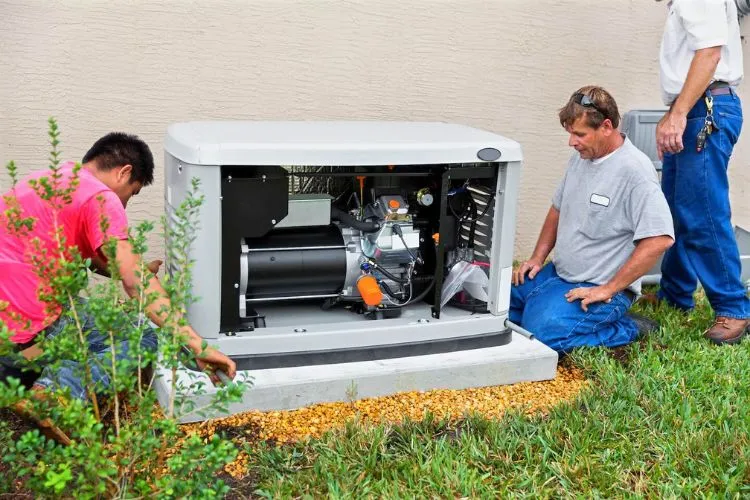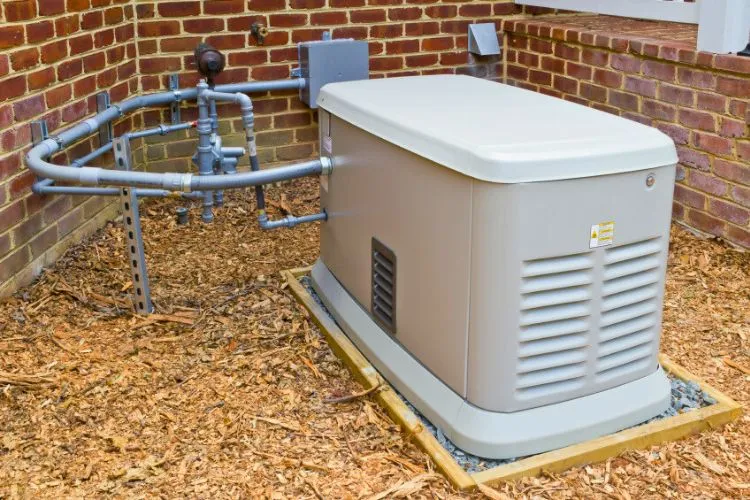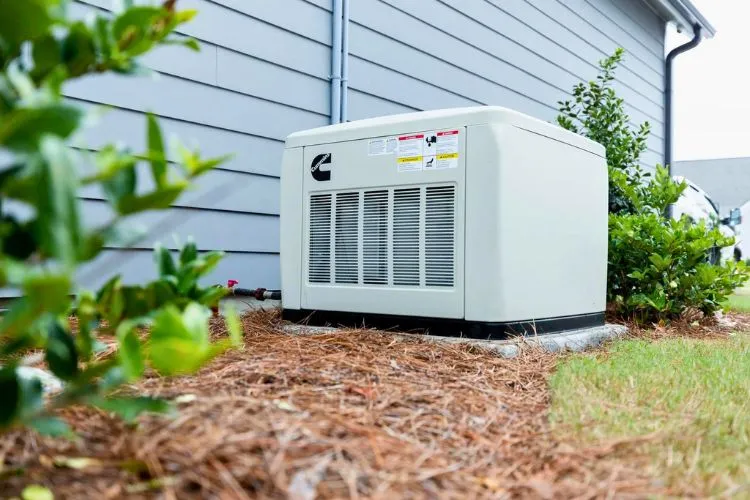In today’s world, where electricity powers almost everything in our homes—from appliances to security systems—the need for a reliable power source has never been more critical.
This is where home standby generators come into play, ensuring that our lives continue seamlessly, even during power outages.
But, do you know how home standby generators work?
This article dives deep into the workings of home standby generators, highlighting their components, operation, benefits, installation, maintenance, safety, and more.

Understanding Standby Generators
A standby generator is a backup electrical system that automatically provides power to a home during a power outage.
Unlike portable generators, these are permanently installed and can supply electricity to a house for days.
Key Components of Standby Generators
The engine is the heart of the generator, converting fuel into mechanical energy. The alternator, closely linked to the engine, then turns this mechanical energy into electrical energy.
The type of fuel used, such as natural gas, propane, or diesel, is crucial because it feeds the engine. The cooling and exhaust systems prevent the generator from overheating and manage waste gases.
The transfer switch plays a pivotal role in automatically transitioning the home’s power source from the grid to the generator during an outage. Lastly, the control panel is the operational hub, allowing homeowners to monitor and adjust the generator’s settings.
How Home Standby Generators Work?
When a power outage occurs, the transfer switch detects it and activates the generator. This automatic start-up is crucial as it ensures that power supply to the home is uninterrupted.
The generator then begins generating electricity, which is supplied to the home’s circuit to power appliances and systems. This operation can continue until the power grid is restored.
Once the grid is back, the system automatically shuts off the generator and switches back to the main power source.
Benefits of Standby Generators
The primary benefit of having a standby generator is the assurance of an uninterrupted power supply. This reliability is especially crucial during emergencies.

Moreover, the automatic operation of these generators means that homeowners do not need to manually switch over power sources during outages.
These systems also help protect properties from damage that can occur due to power outages, such as burst pipes in winter (due to a lack of heating) or spoilage of food in refrigerators.
Installation Considerations
Installing a standby generator is not a DIY project. It requires professional installation to ensure safety and compliance with local codes and regulations.
Choosing a location involves considering factors like safety and accessibility. Homeowners must also navigate permits and regulations, which can vary significantly by location.
Maintenance and Safety
Regular Maintenance
To ensure reliability, regular maintenance of the generator is necessary. This includes checking oil levels, replacing filters, and ensuring that the system is generally in good working order.
Safety Tips
Safety is paramount when operating a standby generator. Proper ventilation is critical to prevent carbon monoxide poisoning. Regular professional inspections are also crucial to maintain safety standards and ensure the generator operates efficiently.
Pro Tips
Selecting the right size generator is the first step to ensuring it meets your home’s energy needs. Consider the fuel type based on its availability and feasibility for long-term storage.
Opting for generators with smart features can also offer benefits like remote monitoring, allowing for easier management of the system.
Environmental Considerations
While standby generators are incredibly beneficial during power outages, it’s important to consider their environmental impact.
The type of fuel used can significantly affect the generator’s emissions. Recent advancements have aimed to reduce these emissions, making standby generators more environmentally friendly.
Choosing the Right Model
When in the market for a standby generator, it’s crucial to consider several key features that differ across models, ensuring you select a unit that meets your specific needs effectively.

Features to Look For
The power output of a generator is paramount; it determines how many appliances and systems in your home it can support simultaneously. Assess your power needs by identifying critical items that need running during an outage.
Noise levels are another important consideration, especially in residential areas where keeping disturbances to a minimum is important. Look for models that advertise low decibel levels or include noise-reducing technology.
Efficiency is also critical; more efficient generators use less fuel per hour of operation, which can lead to significant savings over time, especially during extended outages.
Brand Reputation
Selecting a generator from a reputable manufacturer can greatly influence your experience. A good reputation often reflects a history of reliability, durability, and customer satisfaction.
Researching and reading customer feedback can provide insight into real-world performance and the manufacturer’s customer service quality. Additionally, robust warranty coverage is crucial.
It’s reassuring to know that the manufacturer stands behind their product with a comprehensive warranty, offering peace of mind that you’re making a secure investment.
Investing in a brand with a solid reputation and strong warranty can save time, money, and frustration in the long run, ensuring you have reliable power when you need it the most.
Frequently Asked Questions (FAQs)
What is the difference between a standby generator and a portable generator?
Standby generators are permanently installed and automatically provide power during outages, while portable generators are temporary solutions that require manual setup and operation.
How often should a standby generator be serviced?
It is generally recommended to service a standby generator at least once a year, but more frequent checks may be necessary depending on usage.
Can I install a standby generator myself?
Due to the technical and safety considerations involved, professional installation is strongly recommended for standby generators.
How long can a standby generator run during a continuous power outage?
The runtime of a standby generator depends on its fuel source and capacity. Some models can run for several days, assuming an adequate fuel supply.
Are standby generators loud, and what can be done to minimize noise?
While standby generators make noise when in operation, newer models are designed to be less noisy. Installing sound-dampening enclosures can also reduce noise levels.
Conclusion:
A home standby generator is a worthy investment for anyone looking to ensure uninterrupted power supply during outages.
Understanding how these generators work, their benefits, installation considerations, maintenance, and safety is crucial for homeowners.
By selecting the right generator and adhering to proper maintenance and safety protocols, you can enjoy peace of mind knowing that your home will remain powered during any outage.
